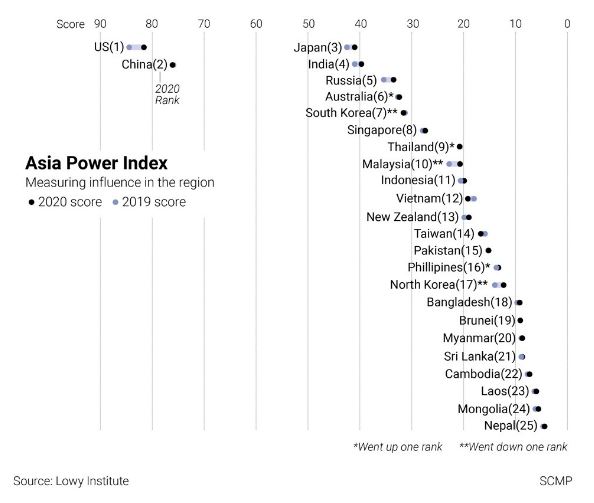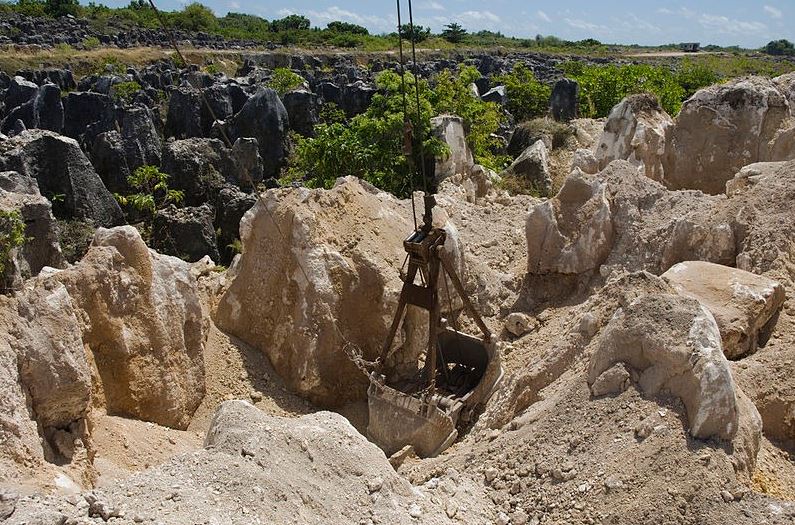
When I first came across this English idiom long time ago, I found the speaker very unreasonable. To some extent, the tone of it disgusted me. On what ground is one licensed to be so assertive that he/she cannot tolerate dissent? But as the year of 2020 is coming to an end, we’re hearing more often than not—My way or the Highway.
What is done cannot be undone. Although the U.S. has elected its next president fair and square, the country remains so polarized and divisive that the narrow-minded only can accept one voice, one opinion, one idea, and one way—My way or the Highway. According to statistics released in September by the U.S. Treasury Dept., the outstanding debt of the federal government has grown from $22.6 trillion on 9/24/2019 to $26.8 trillion year on year, an increase of $4.2 trillion in the last 12 months. How do we get here? American citizens are not debt-free, far from it; neither will the future citizens be debt-free. Since 1960, the U.S. Congress has acted 78 separate times to permanently raise, temporarily extend, or revise the definition of the debt limit. What if the future generation does not want to follow their parents’ and grandparents’ way of spending? Will they have a say?
Apparently, Trump’s “MY WAY” rhetoric and behavior have done greater damage than any of his predecessors. Some damages are far-reaching and even irreparable such as the integrity of the GOP. I doubt the GOP could return to what it used to be or even excel at its party history during Lincoln’s time. According to the annual index produced by the Lowy Institute, a Sydney-based think tank, the U.S. saw its relative power drop the most of any country in 2020. The U.S. registered the sharpest declines in economic relationships, economic capability and diplomatic influence, with its reputation taking a greater hit due to COVID-19 than any other country. The US’s death toll of COVID-19 is on the rise like an atrocity in the Kosovo War or the Rwandan genocide. To what end, will we get off the highway of craziness?
The U.S. is not the only country that proclaims its “MY WAY” policies, if there are any policies per se under Trump rather than political hot air. The world’s second largest economy is also asserting louder and prouder about its “One China” and “Internal Affairs” principles. But today’s China is no longer China in the 1980s—it is a driving force of the system of globalization, a determinant of colonialism in the information age, and a colossal beast in intergovernmental cooperation. If you want to join the club in an international game, you cannot forbid other players from checking on you; you cannot abuse your special status as “a developing country” and ignore international rules.
While I was doing my case study about the Sundarbans, India, I saw this article with respect to the establishment of Rampal Thermal Power Plant just north of the Sundarbans in Bangladesh. Scientists and activists have repeatedly voiced concerns that the plant could threaten the world’s largest mangrove forest. You’d think intergovernmental institutions could pressure local government or even stop it from green-lighting the project. Sadly, a recommendation to add the Sundarbans to the list of World Heritage Sites in Danger was rejected by UNESCO’s World Heritage Committee, which is chaired by China. The Chinese, Bosnian, and Cuban delegations even passed an amendment erasing mention of the Rampal power plant and two joint Bangladesh-China coal-fired power plants from the decision. Who says China is disinterested in global affairs? Who believes China is only interested in self-development with friendliness?
I’ve particularly grappled with the inconsistency and hypocrisy mirrored in individuals as well as global leaders. Thanks to Trump’s flip-flop attitude that reinforces my skepticism during the past four years. My way or the high way. Should I remain skeptical or should I believe there are still opportunities—the ones with good intention—to be taken place between nations? In 2020, China’s pledge to achieve carbon neutrality before 2060 has made headlines, followed by Japan and South Korea. China is influential, at least geopolitically. China scored 76.1 in this year’s Asia Power Index, holding steady to retain the second place from the previous year.

And yet, how will China achieve its carbon neutrality goal? Consultancy firm Wood Mackenzie estimated it would require investments of more than US$5 trillion. Solar, wind and storage capacities will have to increase 11 times to 5,040 gigawatts by 2050 compared with 2020 levels. How will low-rung Chinese people adapt to the loss of coal mining jobs that are projected to be halved? Perhaps that explains why China invests heavily in carbon capture and storage (CCS) technology to retain coal mining activity in key provinces.
Internationally, perhaps lesser known to its citizens, China is following the path of any developed countries to export unwanted electronic junk to Africa. Millions of used and new inefficient AC appliances are being sold in Africa every year, many of them illegally. According to a research by two nonprofits, a quarter of the sample low-efficiency AC units were imported from non-African countries, primarily China. If you are interested in reading more about the dirty secret of e-waste recycling between China and the United States, click here for my comparative case study titled “Turning Trash Into Treasure.”
Humanity does not seem to be interested in learning about their mistakes from history. Perhaps, it lends a louder voice for Alexander Pope’s “To err is human” to excuse us from not reflecting upon our deeds, specifically, those are done wrongfully. Perhaps that’s why history repeats itself, if not completely, at least somewhat in the similar trajectory as if were the free fall of water from a fountain; perhaps that’s why humanity is trapped in history; and “My Way or the Highway” is being incentivized by arrogant mortals for their ignorance of our shared past.
I was heavy-hearted for days after my case study about Kiribati. I don’t relish Trump’s rhetoric except for his dubbing those Least Developing Countries (LDC) such as Haiti as “s***h*** countries.” I hope he understand (of course he doesn’t) what these LDC have become is largely an historical problem traced back to colonial times. The rich countries achieved successes through overexploitation of natural resources in LDC. Under British rule, the phosphate mining in Banaba, Kiribati has forced out indigenous residents for good. Phosphate mining also devastated Nauru, a neighboring country of Kiribati in the Pacific Ocean. In the process of mining phosphate to fertilize fields in faraway places, the country had rendered its own landscape infertile. Today, the island is a barren wasteland with jagged limestone pinnacles that cover 80% of the island. Remotely, I sob for those indigenous people who are living in hell.

Look, there has been international aid given to these LDC countries from the West as a sort of a gesture of redemption from the former colonial countries to their former subjects. Today, China’s global outreach for trade and natural resources is also expansive and disrespectful of local ecosystem services—logging, poaching, offloading toxic waste, and exploiting labor forces by not hiring local workers. As the United States is recuperating from severe trauma associated with COVID-19 and the unpopular White House occupant, why wouldn’t an authoritarian superpower rise to the occasion and amplify it’s “my way or the highway” air of arrogance in the void of democracy and diplomacy?
As I’ve constantly stressed that climate action won’t take flight with the “my way or the highway” mentality. Disinformation and misinformation are further dividing us through laissez-faire attitude to Internet of Things. The longer we wait to tackle climate change, the heavier toll is afoot. There is no vaccine to a climate crisis, only more deaths and losses encounter us following disasters. Ahead of COP26 in 2021 (the UN Climate Change conference), let us tune in a webinar presented by Susan Biniaz, former U.S. negotiator of the 2015 Paris Agreement. This is what we the Americans left off after the country was formally withdrew from the Paris Agreement on November 4, 2020.
And this video is why countries need to expedite the efforts of international cooperation. NASA, US and the European Space Agency partnered to launch Sentinel-6 Michael Freilich satellite into the space on November 21 to monitor global sea levels. If what lies ahead is uncertain as a result of the pandemic and U.S. politics, there is one thing we should be certain that we don’t save the planet before we save ourselves. We live on this planet and we are responsible for making sure our living condition is intact as if it were bestowed to us before we were born. It is my way to call for solidarity and sustainability.
